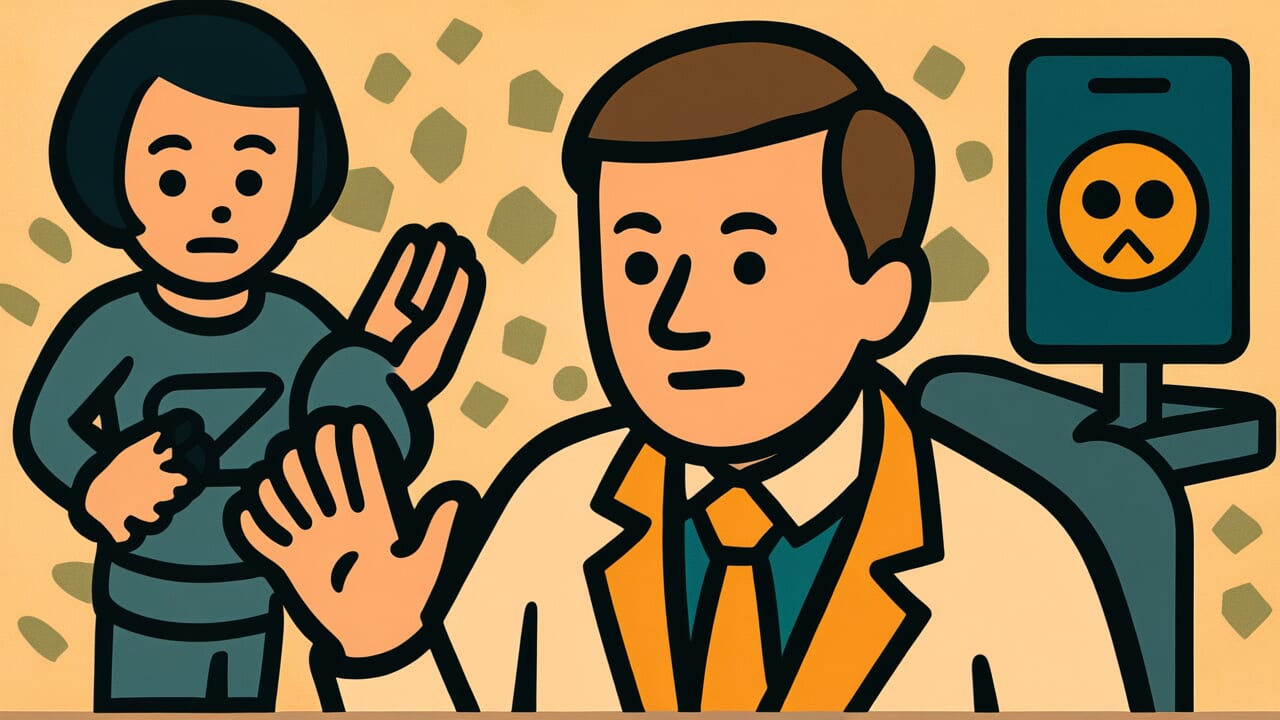How to Read “A bad nature feels good”
Akusho no ki yoshi
Meaning of “A bad nature feels good”
“A bad nature feels good” describes people who have a bad personality inside but act friendly and nice on the outside. This saying warns us not to be fooled by their fake kindness.
This proverb is used when talking about people who seem nice and smile a lot. But really, they only care about themselves. They use others to get what they want.
These people look trustworthy at first. This makes it easy to let your guard down. But the proverb warns us that their true nature is not good at all.
Today, this saying reminds us not to judge people too quickly. First impressions can be wrong. This is especially true in business and relationships.
If you trust someone just because they’re friendly, you might get hurt later. This proverb teaches us to look deeper. We need to see people’s true character, not just their surface behavior.
Origin and Etymology
We don’t know exactly when this proverb first appeared in writing. But we can learn a lot by looking at the words themselves.
“Akusei” means bad nature or bad personality deep inside. “Ki yoshi” means having a good mood or friendly attitude on the outside.
In old Japanese from the Edo period, “ki ga ii” meant someone who was friendly and easy to talk to.
The interesting part is the contrast. The proverb shows two layers: inside versus outside, and true nature versus surface appearance.
Japanese has many expressions about this difference. Words like “haraguroi” (black-hearted) show the gap between what people show and what they hide.
This proverb probably came from merchant communities or busy cities. In these places, relationships got complicated. People needed to be careful about who to trust.
The saying teaches practical wisdom from real life. Don’t judge people by their friendly smile alone. Learn to see their true character. This lesson has been passed down through generations.
Usage Examples
- That salesman is “a bad nature feels good,” so think carefully before signing any contract with him
- He came up to me with a smile, but the phrase “a bad nature feels good” popped into my head, so I didn’t trust him right away
Universal Wisdom
“A bad nature feels good” points to a universal truth about human nature. People have two sides. Why do people hide their true selves? Because they can get benefits by pretending to be nice.
When you act friendly, people trust you more easily. They let their guard down. Our ancestors understood this trick that people use.
What’s interesting is that this proverb doesn’t just criticize bad people. It also warns the people who might get fooled.
We naturally want to trust people who seem nice. When someone smiles and acts kind, we open our hearts. This is a normal human reaction. But this natural reaction can sometimes put us in danger.
This saying has lasted so long because the problem it describes never goes away. In every time period, there’s a gap between surface and reality.
In human society, people always have public faces and private faces. Some people use this difference to trick others. That’s why we need wisdom to see past the surface.
We must look at people’s true character, not just their friendly behavior. As long as humans live in society, this lesson will never get old.
When AI Hears This
In complex systems science, small changes can create huge results. This is called the butterfly effect. What’s important is that “bad changes” might actually save the whole system.
For example, in weather systems, local turbulence (which seems bad) prevents air from getting stuck. This actually stabilizes the climate over large areas.
If the weather stayed perfectly calm, energy would build up in one place. This would cause more destructive events later. Small bad conditions work like a safety valve that prevents big disasters.
Human life is also a complex system with the same pattern. Failures and setbacks are like “bad nature” that shake up your fixed path.
Without this shaking, people keep following a predictable but not-so-great route. But when bad conditions change the starting point, the system explores completely different solutions.
Chaos theory shows that even predictable systems can have countless outcomes depending on starting conditions.
Forest fire research shows something interesting. Forests with small fires regularly are healthier long-term than forests that are completely protected.
Small destruction prevents the system from becoming too rigid. It keeps diversity alive. Bad conditions are a necessary search process for complex systems to find the best solution.
Lessons for Today
This proverb teaches us to develop good judgment about people. With social media today, we judge people by surface impressions even more than before.
Profile pictures and posts show only one side of a person. They don’t tell the whole story.
The important thing is not to judge too quickly. Just because someone seems nice when you first meet doesn’t mean you should trust them completely right away.
Take time to get to know people. This is especially important when making big decisions. Look at their actions, their reputation, and whether they’re consistent over time.
But this proverb doesn’t tell us to be paranoid. Don’t suspect everyone you meet. Instead, keep a healthy distance while you learn about them.
Many friendly people are truly good inside. The key is to stay calm and not judge by surface alone. Try to understand their real character.
This wisdom helps you build rich and safe relationships. It’s the first step to protecting yourself while staying open to good people.



Comments